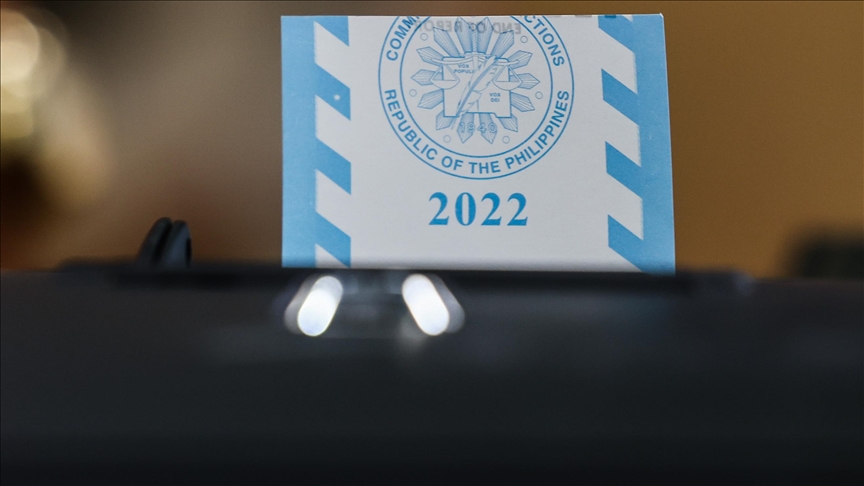No compromise on ‘sacred’ sovereignty, says Philippines’ president-elect
‘We do not need to be told by anyone how to run our country,’ Marcos Jr. spells out priorities on foreign affairs, maritime issues

ISTANBUL
The sovereignty of the Philippines is “sacred” and “we do not need to be told by anyone how to run our own country,” said the president-elect of the archipelago nation on Thursday.
Ferdinand Marcos Jr. added that the Philippines will use the “important ruling” by the Permanent Court of Arbitration (PCA) in 2016 on the South China Sea “in our favor.”
“We will use it to continue to assert our territorial rights. It is not a claim; it is already our territorial right,” said Marcos in an interview with a select group of journalists aired live on his Facebook page.
Marcos, 64, secured a landslide victory earlier this month in presidential elections and is set to take over the charge next month as his predecessor Rodrigo Duterte leaves the office after completing a six-year term.
Directly addressing China, Marcos, son of the former dictator who was ousted by a 1986 people’s revolt, said: “There is no wiggle room there. Our sovereignty is sacred. We will not compromise it in any way.”
'No room for negotiation over sovereignty'
China and the Philippines share maritime borders in the hotly contested South China Sea.
They fought it out at the PCA where Manila emerged victorious as Beijing’s claims over the resource-rich sea were invalidated by The Hague-based authority.
However, the outgoing President Duterte had indicated that he would “set aside” the international tribunal’s ruling in a bid to strengthen ties with Beijing.
Calling the Philippines’ relations with the US “very strong” and “advantageous” to both the countries, Marcos, however, said Manila will “have to maintain a balance.”
Pointing to the fallout of the COVID-19 pandemic, the incoming president said he is making plans for economic recovery by using new technologies.
“We are a sovereign nation with a functioning government. We do not need to be told by anyone how to run our own country,” Marcos said.
Chinese President Xi Jinping, in a congratulatory phone call following Marcos’ victory, had told him: “Beijing hopes Manila continues to pursue an independent foreign policy.”
“The changes of the world, the times and history have been unprecedented, with peace and security facing new challenges,” Xi told Marcos.
Xi had emphasized the need for the two countries to maintain “good-neighborly and friendly” relations as part of “an Asian family” that believes in “win-win cooperation.”
Referring to maritime issues with Beijing, Marcos said: “There is no room for negotiation ... It is sacred, inviolable.”
“We will not allow a single square millimeter of our maritime and coastal rights to be trampled upon,” he asserted.
“How do we do this? We talk to China consistently with a firm voice,” Marcos said.
In Beijing, Wang Wenbin, spokesperson of China’s Foreign Ministry, said Beijing’s “attitude towards the case remains unchanged and it's willing to settle differences through dialogues to preserve peace and stability in the region.”
Marcos said Manila has “to continue to discuss” with Beijing the “conflicting claims that we have with China and China has with other members of the ASEAN.”
He was referring to the Association of Southeast Asian Nations of which the Philippines is a member. “ASEAN is going to be a very critical part of the discussion,” he noted.
“Nonetheless, we have to continue to pursue bilateral contact and communication with China and in fact, this is what I mentioned when I spoke with President Xi.
“We have to continue to talk about this. This cannot be allowed to fester and become more severe between our two countries,” said Marcos.
'Don’t subscribe to old thinking of Cold War' era
Pointing to the US role in the Asia-Pacific, Marcos said America now “has a very strong global … strategic interest in the region with the rise of China.”
“Their view that the West Philippines Sea is a critical part of trade routes, which it is and that is why it is so important for shipping in the region … We are a small player among large giants in terms of geopolitics,” he said, adding that in the changing geopolitical environment, the Philippines has “to apply to our own way.”
“I don’t subscribe to old thinking of Cold War where we have the sphere of influence,” he maintained. “We have to just find an independent foreign policy where we are friends with everyone.”
Regarding ASEAN, Marcos said the partnership between the regional grouping and the Philippines “will be critical.”
“As we emerge from the pandemic and the crisis it brought, we have to form alliances and partnerships, because no country can recover and change the geopolitical situation on their own and those partnerships will keep things stable,” he asserted.
Wang, the Chinese Foreign Ministry official, told a news conference that China is always ASEAN’s “reliable neighbor, friend and trustworthy partner.”
“China sees ASEAN as a priority in its neighborhood diplomacy, supports its central position in the regional structure, and always supports each other,” he added.








